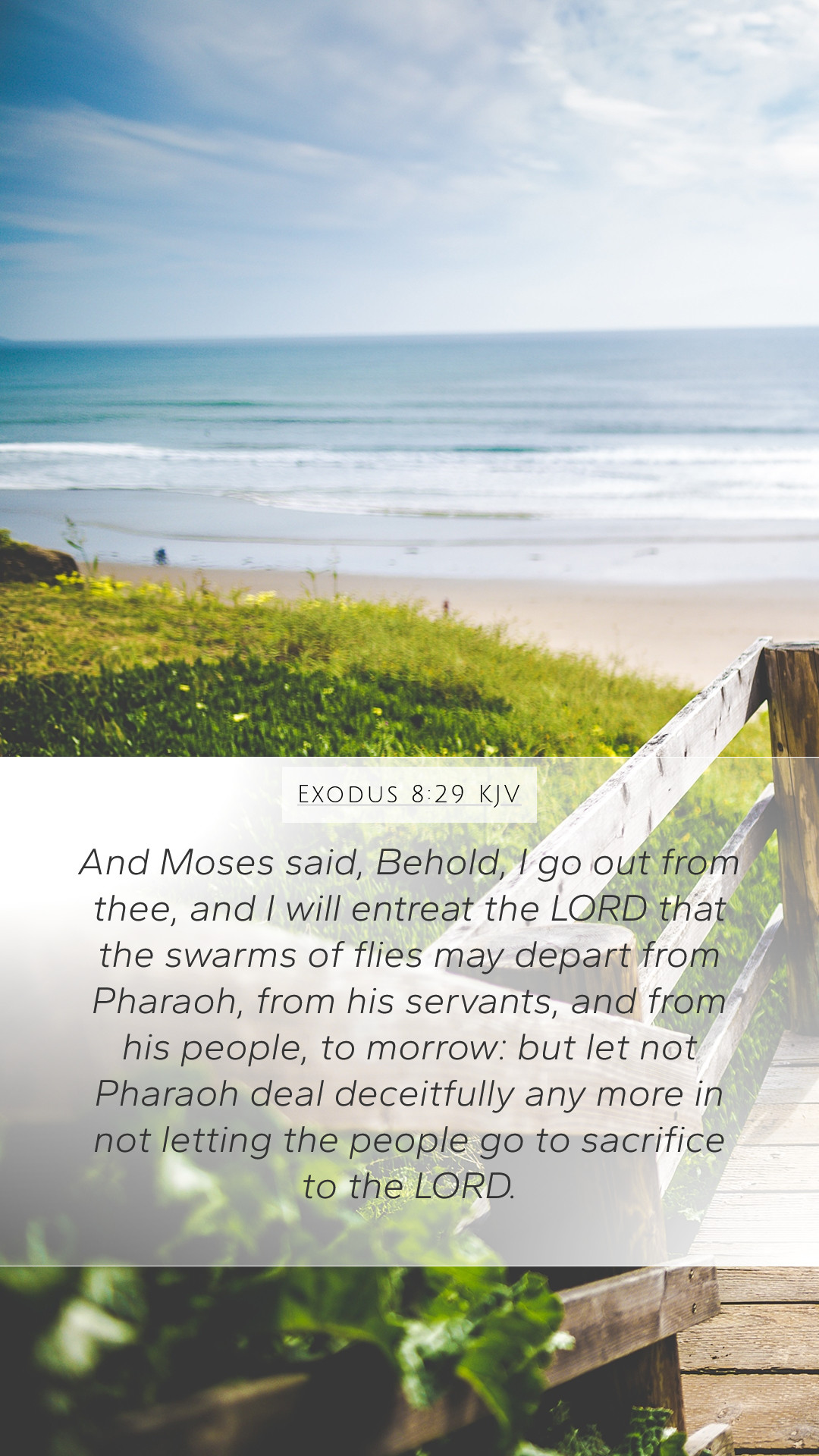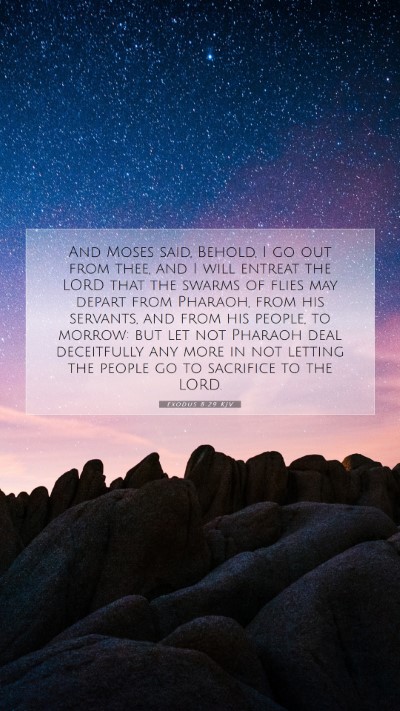Bible Verse Commentary: Exodus 8:29
The verse Exodus 8:29 states:
"And Moses said, 'Behold, I go out from thee, and I will entreat the Lord that the swarms of flies may depart from Pharaoh, from his servants, and from his people, tomorrow: but let not Pharaoh deal deceitfully any more in not letting the people go to sacrifice to the Lord.'"
Understanding the Context
In this passage, we find Moses negotiating with Pharaoh amidst a series of plagues that God has inflicted upon Egypt as a means to deliver the Israelites from bondage. The focus of this verse is on Moses’ faithfulness in interceding for the people of Israel and addressing Pharaoh's deceitfulness.
Key Themes
- The Role of Intercession: Moses acts as an intermediary, representing not only himself but the suffering Israelites who seek freedom.
- The Importance of Truthfulness: Pharaoh's prior deceitful promises are highlighted, emphasizing the need for integrity in leadership.
- Divine Authority: The passage reflects God's power over nature and kingdoms, showcased through the plagues that ensued.
Bible Verse Interpretations
Commentators like Matthew Henry emphasize that Moses’ role highlights the importance of faithful prayer and petitioning God for intervention. Albert Barnes notes that the phrase "deal deceitfully" suggests a profound warning to Pharaoh regarding his repeated refusal to comply with God’s command. Meanwhile, Adam Clarke analyzes the term "swarms of flies" as symbolic of God's judgment imposed upon the Egyptian elite and how, through Moses’ actions, God is demonstrating both His mercy and sovereignty.
Detailed Analysis
This verse illustrates several significant aspects of biblical themes:
- The Character of God: It shows God’s readiness to forgive and remove the consequences of sin (the plagues) if Pharaoh would relent.
- Human Responsibility: Pharaoh's response to Moses reflects the broader theme of free will versus divine intervention, as seen throughout the scriptures.
- Leadership Dynamics: The relationship between Moses and Pharaoh can serve as a case study in leadership, power, and responsibility.
Biblical Exegesis and Application
A deeper examination of this verse includes understanding the historical context of the Israelites' oppression and the significance of the plagues in demonstrating God's power to both the Israelites and Egyptians. It asks readers to consider how leadership is exercised in their lives and the importance of maintaining honesty in their dealings.
Applying Bible Verses to Daily Life
This scripture can lead to valuable lessons on leadership by encouraging integrity and transparency in one's dealings. It teaches that true authority comes from God and that intercession is a powerful tool for advocating on behalf of others.
Related Bible Cross References
- Exodus 7:16: Moses is instructed to tell Pharaoh to let the Israelites go.
- Exodus 10:3: Moses confronts Pharaoh about his refusal to let the people go.
- Hebrews 11:29-30: The faith of the Israelites during the events of the Exodus.
Conclusion
Exodus 8:29 is a pivotal moment in the narrative of the Israelites' liberation, showcasing Moses’ intercessory role while exposing Pharaoh’s heart and moral failures. The verse serves as a reminder of the powerful intersection of divine authority and human agency, ultimately calling for sincerity and obedience to God’s commands.


